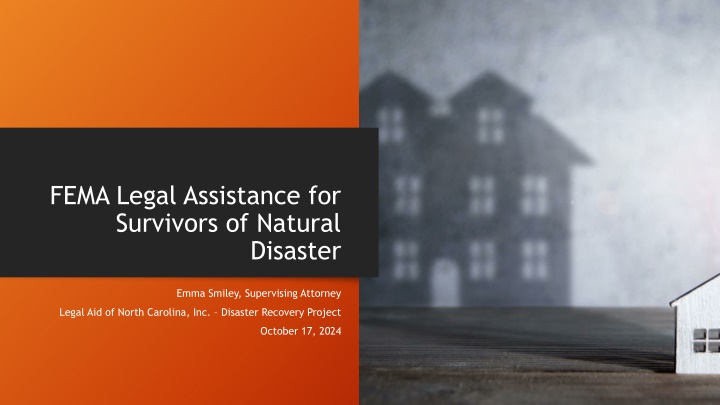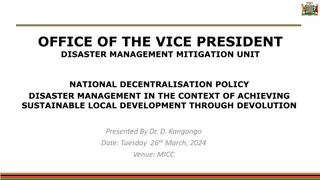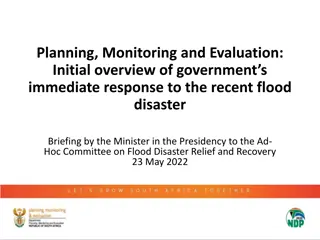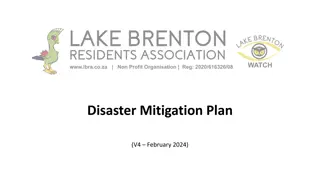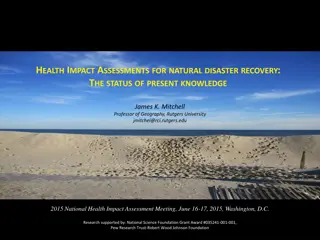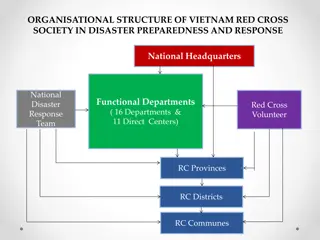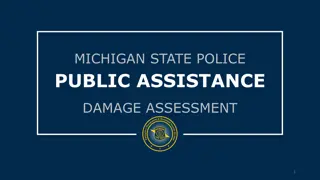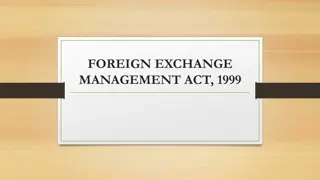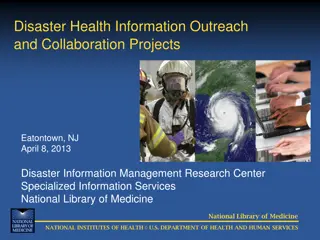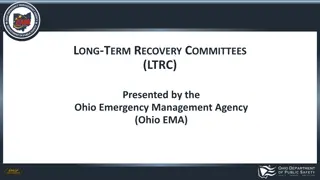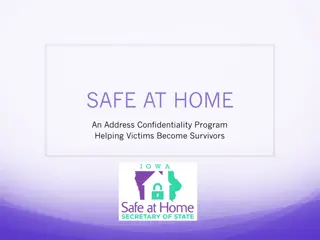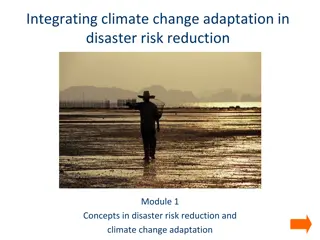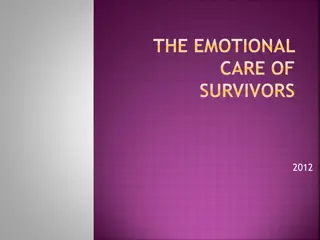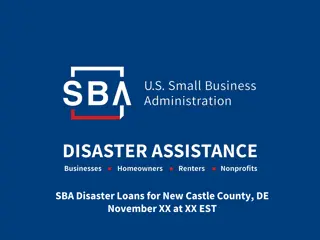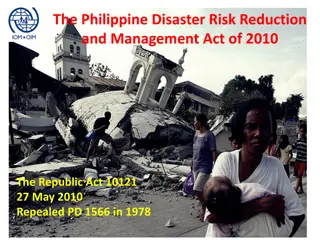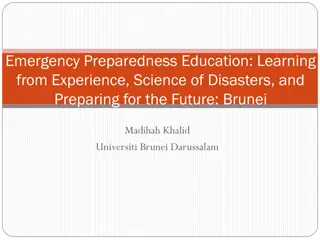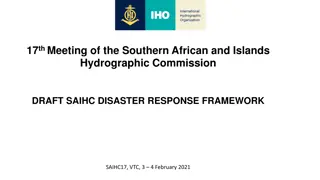FEMA Legal Assistance for Natural Disaster Survivors
Learn about FEMA Individual Assistance for survivors of natural disasters, eligibility criteria, application process, and what to do in case of denial. Find out how FEMA provides support for home repair, rental assistance, and other critical needs.
Download Presentation

Please find below an Image/Link to download the presentation.
The content on the website is provided AS IS for your information and personal use only. It may not be sold, licensed, or shared on other websites without obtaining consent from the author.If you encounter any issues during the download, it is possible that the publisher has removed the file from their server.
You are allowed to download the files provided on this website for personal or commercial use, subject to the condition that they are used lawfully. All files are the property of their respective owners.
The content on the website is provided AS IS for your information and personal use only. It may not be sold, licensed, or shared on other websites without obtaining consent from the author.
E N D
Presentation Transcript
FEMA Legal Assistance for Survivors of Natural Disaster Emma Smiley, Supervising Attorney Legal Aid of North Carolina, Inc. Disaster Recovery Project October 17, 2024
Home repair assistance Rental, lodging, or displacement assistance Transportation/Vehicle repair assistance What does FEMA cover? Personal property repair and replacement Medical, dental and funeral expenses Other "necessary expenses and serious needs New: serious needs assistance of $750
U.S. citizens, non-citizen nationals, and qualified aliens Applicant's identity must be verified Who Is Eligible for FEMA Individual Assistance? Losses must be the result of a declared disaster and applicant must live in an area approved for individual assistance Only losses beyond the assistance provided by private insurance or voluntary organizations can be covered by FEMA Note: These requirements do NOT affect ability to receive non-cash emergency assistance such as sheltering and food
In person at local Disaster Recovery Centers (DRCs) How Do Survivors Apply to FEMA? By phone at 800-621-3362 Online at https://www.disasterassistance.gov Via smartphone app available at www.fema.gov or through the smartphone's app store Note: typically, applications must be submitted within 60 days of the disaster declaration, though the application period may be changed for an individual disaster
FEMA inspector will visit the survivor's home soon after application What Is FEMA's Process? FEMA will make a decision, mail a letter to the survivor, and direct deposit any award to the survivor's bank account Survivors and designated contact people can call FEMA for more information about case status
What Happens After a FEMA Denial? Applicant will receive a non-specific form letter Option to appeal: 60 days from denial or insufficient award Option to request reconsideration: timeline may be flexible Appeals and requests for reconsideration are submitted in writing by the applicant or designated contact person All FEMA decisions will be directed to the applicant FEMA decides appeals and reconsiderations on paper No opportunity for a hearing
What Are the Requirements to Receive Home Repair Funds? Applicant owned the home at the time of the disaster Applicant occupied the home as their primary residence at the time of the disaster Losses are not covered by homeowner's insurance Home is uninhabitable or inaccessible due to the disaster Habitable: safe, sanitary and functional Must apply to essential rooms of the home: kitchen, living room, occupied bedrooms and bathrooms associated with occupied bedrooms Flood insurance maintained if required Not intended to repair all damage; 2024 limit of $42,500
FEMA's definition of habitable: safe, sanitary and functional Only applies where essential rooms are uninhabitable Habitability Pre-existing damage does not prevent FEMA assistance
Contractor estimates and receipts Submit contractor questionnaire regarding damage FEMA may interview contractors by phone Photographs Proving Uninhabitability State or local inspection reports FEMA's inspection report FEMA can re-inspect
Ownership FEMA's definition of ownership 1) Applicant is the title owner OR 2) Applicant does not hold formal title but pays no rent and is responsible for payment of taxes and maintenance to the residence OR 3) Applicant has lifetime occupancy rights with formal title vested in another FEMA accepts self-declaration as last resort
FEMA Practice Tips Keep client expectations low! FEMA funds are not intended to put home back in original condition But, you can request reconsideration of too small an award Stick to the identified issues Call customer service with questions . but don t be surprised by inconsistent answers FEMA responds with form letters. The file or customer service can provide more specific information Call if a response is unusually delayed Delay may be due to an uncommunicated issue
The Stafford Act prohibits federal funds from covering any disaster-related need already covered by another source For instance, if insurance funds cover the damage, FEMA may not also provide the owner funding for the same damage Duplication of Benefits Duplicative funds must be repaid to FEMA Keep receipts!
Emma J. Smiley Supervising Attorney Legal Aid of North Carolina, Inc. emmas2@legalaidnc.org (984) 297-2015 Also email: DLS@ncbar.org Thank you for attending!
